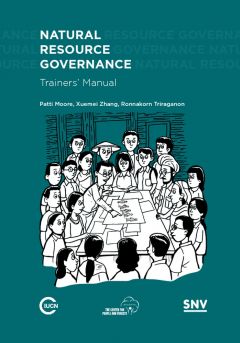Location
IUCN is a membership Union uniquely composed of both government and civil society organisations. It provides public, private and non-governmental organisations with the knowledge and tools that enable human progress, economic development and nature conservation to take place together.
Created in 1948, IUCN is now the world’s largest and most diverse environmental network, harnessing the knowledge, resources and reach of more than 1,300 Member organisations and some 16,000 experts. It is a leading provider of conservation data, assessments and analysis. Its broad membership enables IUCN to fill the role of incubator and trusted repository of best practices, tools and international standards.
IUCN provides a neutral space in which diverse stakeholders including governments, NGOs, scientists, businesses, local communities, indigenous peoples organisations and others can work together to forge and implement solutions to environmental challenges and achieve sustainable development.
Working with many partners and supporters, IUCN implements a large and diverse portfolio of conservation projects worldwide. Combining the latest science with the traditional knowledge of local communities, these projects work to reverse habitat loss, restore ecosystems and improve people’s well-being.
Resources
Displaying 86 - 90 of 142Natural Resource Governance Trainer's Manual
Governance is the keystone of sound natural resource management. Its core principles - accountability, transparency, participation, and the rule of law - are at the heart of the efforts being made at local, national, bilateral and multilateral levels to ensure that decisions that affect natural resources and resource users are well-informed and implemented equitably. There is a real need for all those who are involved in making and implementing decisions to understand the basic concepts and principles of governance and be able to apply them in their daily work.
A World of Opportunity
More than two billion hectares of the world’s deforested and degraded landscapes are likely to offer potential for restoration — a vast opportunity to reduce poverty, improve food security, reduce climate change, and conserve biodiversity
A World of Opportunity
More than two billion hectares of the world’s deforested and degraded landscapes are likely to offer potential for restoration — a vast opportunity to reduce poverty, improve food security, reduce climate change, and conserve biodiversity
A World of Opportunity
More than two billion hectares of the world’s deforested and degraded landscapes are likely to offer potential for restoration — a vast opportunity to reduce poverty, improve food security, reduce climate change, and conserve biodiversity
A World of Opportunity
More than two billion hectares of the world’s deforested and degraded landscapes are likely to offer potential for restoration — a vast opportunity to reduce poverty, improve food security, reduce climate change, and conserve biodiversity





